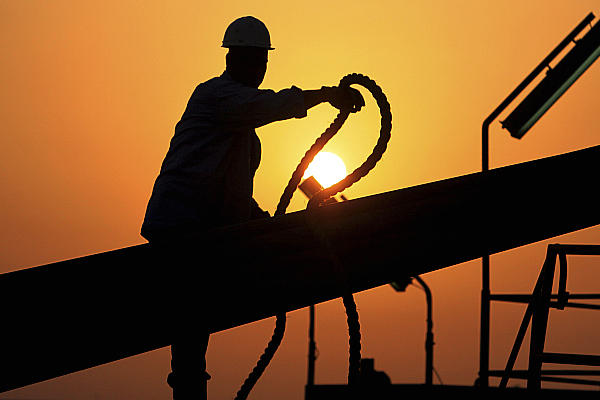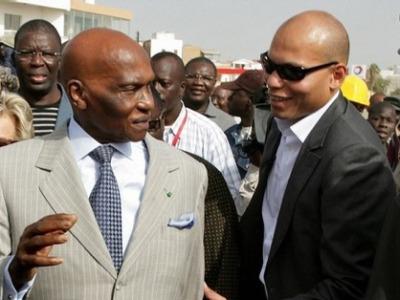Sub-Saharan Oil and Gas 2012: a Business Africa guide – By Rolake Akinkugbe, Ecobank Capital

 If 2011 was a record year for elections in Africa, it was also the year frontier exploration for oil and gas came of age. Global crude oil prices have risen steadily since mid-2010, and with annual growth in Africa’s oil production likely to be 4 percent over the next 5 years, the long-term triple digit oil price environment likely to stay, and proven oil reserves reaching 132.1 billion in 2010 (from and estimated 53.4 billion barrels in 1980), Africa has never been more attractive for the ambitious explorer. Buoyed by the prospect of being able to book thousands of barrels in reserves, untapped markets, and generally benign regulation – compared with the tightening regulatory environment elsewhere in the West – experienced majors, independent explorers and indigenous companies are lining up to exploit these opportunities.
If 2011 was a record year for elections in Africa, it was also the year frontier exploration for oil and gas came of age. Global crude oil prices have risen steadily since mid-2010, and with annual growth in Africa’s oil production likely to be 4 percent over the next 5 years, the long-term triple digit oil price environment likely to stay, and proven oil reserves reaching 132.1 billion in 2010 (from and estimated 53.4 billion barrels in 1980), Africa has never been more attractive for the ambitious explorer. Buoyed by the prospect of being able to book thousands of barrels in reserves, untapped markets, and generally benign regulation – compared with the tightening regulatory environment elsewhere in the West – experienced majors, independent explorers and indigenous companies are lining up to exploit these opportunities.
New finds fuel oil sector
In an emerging market, Ghana has recently joined the continent’s “˜generation X’ of oil producers, with current daily production of around 70,000 barrels per day (bpd) from the 2 billion barrel Jubilee offshore field. Landlocked Niger also commenced its first oil production of around 20,000 bpd at the Chinese National Petroleum Company (CNPC)-operated Agadem oil field in October 2011. Output from new producers however still trails behind sub-Saharan Africa’s largest producers – Nigeria and Angola – which have a daily combined production of over 3 million bpd.
Further new discoveries by Jubilee partners since the initial find in 2007 stand Ghana in good stead to gradually join the ranks of mid-tier African producers such as Cameroon and Congo-Brazzaville. Indeed, annual change in production growth in Ghana will outpace some of the other minor producers in the next 3 years, if recent discoveries are fully commercialised and brought into production. Africa’s East coast is also getting itself a piece of the action – gas discoveries by international oil companies (IOCs) in Tanzania and Mozambique have re-ignited investor interest in this previously under-explored region. Oil production is already expected to take off in Uganda’s Lake Albert region in 2012 following the major discovery there in 2006.
New offshore discoveries in Angola’s pre-salt basins could steal some of the shine from West Africa’s Transform Margin and the East African Rift System in 2012. In late 2011, Statoil, ConocoPhillips, ENI, BP and Total were amongst several IOCs that secured licenses off Angola’s coast, The high signature bonuses – US$1bn in one case – paid on those Angolan oil stakes are not atypical for Africa. However, in the context of recent publicity of over an alleged US$32billion accounting discrepancy linked to “˜quasi-fiscal operations’ by Angola’s oil parastatal, Sonangol, there is likely to be renewed spotlight on oil revenue management, transparency and regulatory issues.
Upstream regulation in sub-Saharan Africa had a slow and painful year in 2011. Laws governing exploration, production and fiscal regimes have been hotly debated. There is renewed optimism about the passage of the Petroleum Industry Bill (PIB) in Nigeria by the end of the first quarter of 2012, but momentum could slip if big players negotiating the bills’ terms dig their heels in.
Gas on the rise
Gas is now, globally, the fastest growing fossil fuel. Discoveries in Mozambique and Tanzania are positioning the East African region as a new gas frontier. Gas will likely emerge as a crucial source of energy for local use and to meet export demand in Africa, with a 25 percent production growth forecast over the next 5 years by the International Energy Agency (IEA). Potential Liquefied Natural Gas (LNG) projects in places like Tanzania could open up exports markets to the Middle East and Asia. Tanzania’s EAC neighbours are enthusiastic about the prospects for future gas exports to the region, though the government is likely to seek to prioritize the domestic over regional markets in the short-term.
On Africa’s west coast, which holds 32 percent of natural gas reserves, increases in gas production between now and 2015 will mostly be driven by LNG exports. In 2010 Nigeria and Equatorial Guinea exported 39.30 and 8.28milliion liquid cubic metres respectively. Production at Angola’s 5.2 million LNG plant is expected to commence in February.
So far, Shale and other unconventional gas searches in Africa have been focused mostly in South Africa, but there is evidence of coalbed methane deposits in West Africa and some tight gas sands along West Africa’s coast. Not without its environmental controversies, ENI’s planned 2012 launch of a pilot project centred on an estimated 2.5 billion barrels of recoverable oil sands in the Republic of Congo, is the clearest sign yet that Africa north of South Africa and south of the Sahara may have more robust unconventional gas prospects. Africa’s gas exports however face a new challenge. Demand for LNG from North America could slump in the long-term as a result of growing shale gas production in the US. This surge of unconventional production in North America has already driven gas prices down. As a result, Angola’s state oil firm Sonangol is now considering other export markets focused on Asia, such as Japan.
Globally, oil continues to experience a decline in market share, while gas has steadily gained. Africa may be playing catch up in enabling a more diversified fuel mix, but the proportion of the continent’s consumption of gas as a percentage of its total energy mix will still rise faster than that of oil between now and 2030. At least $230 billion will be required to develop LNG capacity and $22.6 billion to develop gas-to-power projects over the next five years. For now, infrastructural limitations, uncompetitive gas pricing, and the capital intensive nature of gas projects have kept large-scale gas investment limited to a handful of African countries. But domestic and regional requirements for gas are obvious, given the growing importance of gas to Africa’s overall energy mix.
Political problems – to subsidise or not?
Explorers may be happy at rallying crude oil prices, but downstream, the energy story will be more challenging in 2012. The controversies surrounding subsidy reforms in Nigeria, which unsuccessfully attempted to follow a continental trend towards market liberalisation, are a timely reminder that the freewheeling oil business of explorers, refiners, speculators and traders is now firmly rooted in a political context that is hard to divorce from the commercial.
Fuel subsidies are being phased out in many African economies, largely due to sustained fiscal pressures on governments and the disincentives they create for would-be refinery investors. Improvements in refining capacity across the continent would go some way to lessening petroleum product import dependence and thus exposure to crude oil price volatility. If African refineries ran at a minimum of 75 percent capacity, the continent would actually be a net exporter rather than a net importer of refined products.
Foreign v. domestic markets
Africa’s subsidy challenges underscore a more dynamic trend in African oil and energy consumption. By 2013, Africa will account for 12 percent of daily global oil supplies – a production volume of almost 12million barrels per day. Africa’s share of global oil consumption is currently only 5 percent, but the continent will also see the fastest global increase in oil consumption between now and 2030. Much of that will be driven by GDP growth – estimated at an average of 5.75 percent by the IMF for 2012. Demand for the continent’s oil and gas in recent years has been driven mostly by the US and China, but Africa’s own growing consumer, markets, emerging industrialisation and urbanisation are becoming increasingly important for the sector.
Growing domestic consumer markets are triggering new flows of refined petroleum products. Uneven resource distribution facilitates an inter and intra-regional push for crude and petroleum products within Africa. While the import of petroleum products to Africa has risen dramatically over the last decade, the intra-regional trade has also grown, with new smaller players becoming important export hubs to other African countries. Cote d’Ivoire has traditionally been West Africa’s largest intra-regional exporter of refined products, but to its east, the tiny country of Benin, has gained considerable market share as an important re-export hub of petroleum products from places like Nigeria to the landlocked countries of West Africa’s Sahel region. Uganda also fulfils a similar role with regards to Southern Sudan, Rwanda and Burundi. In the southern Africa region, outside of South Africa, the biggest flows of refined products are between Zambia and the DRC, an oil products trade hub that was worth $23million in 2010.
Still, only 6 percent of petroleum products exported from Africa are destined for other African countries (compared with the 41 percent of refined products exported from Africa to Europe). There was also a dramatic rise in the value of refined petroleum product exports in Africa between 2009 and 2010, from US$15bn to $29bn worth of products, likely underlining increased oil consumption as the global economic recovery sets in.
The prospect for new refining capacity could see individual countries export their surplus refined output to neighbouring countries with growing demand. Ecobank Research estimates that with new additional refining capacity Ghana could have a surplus of up to 148,000bpd in petroleum products by 2016, allowing it to exploit the West African regional market.
Conclusion
Arguably, the new investment opportunities opening up in African oil and gas also reflect wider investor sentiment on the continent’s much-touted “˜investment frontier’ status. Equally important should be the realisation that the continent’s energy potential is blossoming at a time when global demand is rising faster than new discoveries. Since 2005, global conventional oil supply has not grown and it may never grow again. Indeed, the world is losing four million barrels a day to depletion, which is estimated to be at a rate of 5-6 percent of consumption. In the throes of the Arab Spring, and consequent disruption to Libyan oil supplies, the importance of West African oil was underscored. Africa’s hydrocarbons resources can fill a crucial gap given comparatively lower oil consumption in the region than elsewhere.
At current production levels there are at least 40 years of reserves remaining in sub-Sahara Africa. However, if governments’ sustainable economic development and good governance goals trail behind the commercial imperatives that drive oil and gas investment on the continent, then oil will remain a very sticky endeavour for years to come.
Rolake Akinkugbe is Oil and Gas Specialist at Ecobank Capital, the investment banking arm of pan-African banking group Ecobank, www.ecobank.com Ecobank’s research can be accessed at www.ecobank.com/research_capital







[…] Full Post Here […]
[…] For one possible explanation, look no further than the oil and gas fields recently found off the coast of Africa. Big reserves mean big money, and the business of extracting and processing new oil and gas from sub-Saharan Africa will be lucrative. […]
buy cialis online cheap cialis